 Vampire Weekend's Surprising Jewish Stories
Vampire Weekend's Surprising Jewish Stories
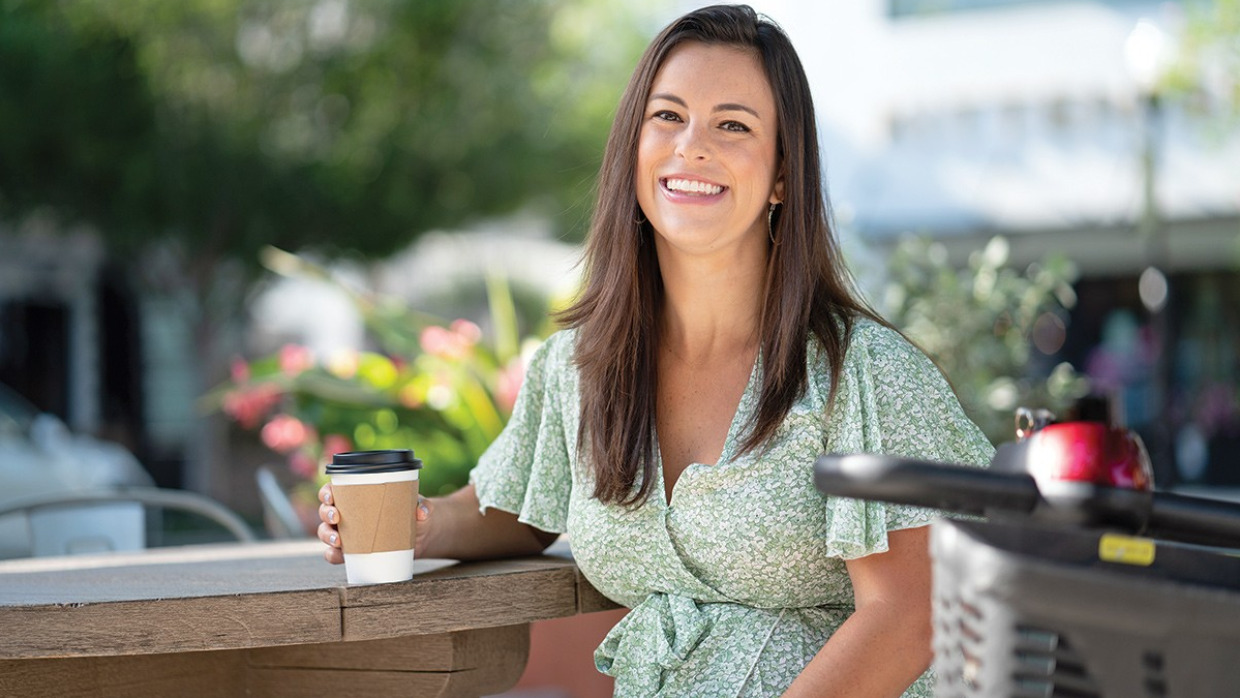

6 min read
Chelsea is using her large online presence to boost awareness about disabilities and promote inclusion.
When Chelsea Bear was 8 months old, her mother was in a Mommy and Me class, interacting with other babies, and noticed that their muscles felt differently from her daughter’s. The babies were also starting to hit milestones that Chelsea wasn’t.
Her mother, Jackie, took her in for treatment, but it wasn’t until Chelsea was three years old that she was officially diagnosed with cerebral palsy, a congenital disorder that stems from abnormal brain development, typically before birth. It can also occur if a baby experiences oxygen deprivation during birth, and it affects their ability to move and maintain balance and posture.
In Chelsea’s case, it’s not clear what happened.
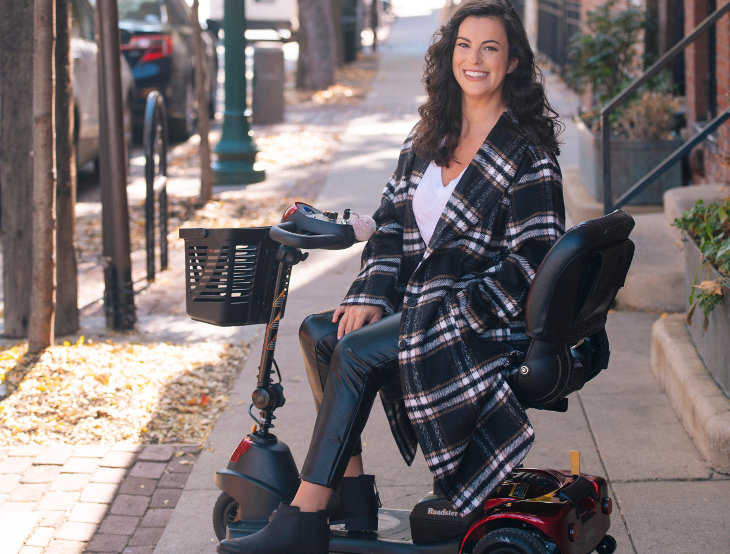
“The doctors never really determined what it was,” Chelsea said. “I was breached when my mom was about to give birth. I was a C-section. There was some kind of lack of oxygen to my brain.”
Chelsea, 30, who is from South Florida and currently lives in Tampa, is now an online influencer who educates people about CP, disabilities, and inclusion, posting videos about her life on her Instagram and TikTok accounts. She’s racked up 7.5 million likes on her TikTok videos and has over 340,000 followers on Instagram.
One of her most popular videos shows her pulling into a handicapped space in a parking lot. The caption says, “You shouldn’t park there! It’s for disabled people!!!”
View this post on Instagram
Then, she gets out of the car and starts walking. She wrote on the post, “I can’t tell you how many times I’ve been judged throughout my life (even as a child in my parent’s car) pulling into a disabled parking space, and being yelled at by complete strangers until I physically get out of my car to “validate” that I’m truly disabled. It shouldn’t be like this. And there’s plenty of reasons someone would qualify for disabled parking without having a physical disability. Be patient and understanding. And most importantly, PLEASE don’t park in or block a disabled parking space if you don’t need it. I can’t tell you how harmful that is for people who truly need them.”
Unfortunately, this is the kind of situation Chelsea faces all the time.
“When I’ve used a mobility scooter at the grocery store, I’ve had employees from certain stores tell me I shouldn’t using that because it’s for people who are disabled,” she said. “I tell them I am, you just can’t tell when I am sitting. They are taken aback. I have a lot of interactions out in the world with people who are discriminating.”
Instead of letting these kinds of experiences get her down, Chelsea uses them as inspiration to keep posting, especially when it comes to disabilities that may not be so visible. Since she was a kid, she’s dealt with having to educate people about how to treat her.
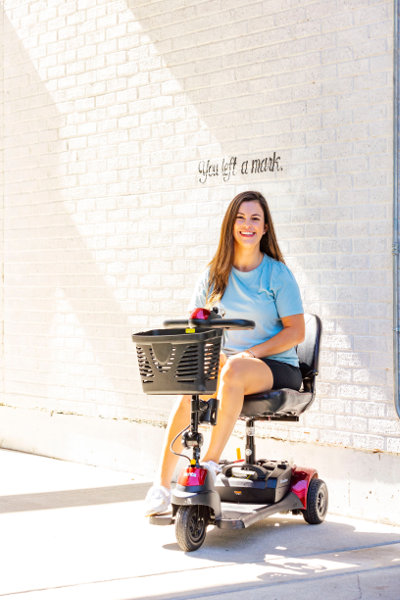
“Whenever people would want to talk about the subject of disability, they didn’t know how to approach it,” she said. “They knew how to talk to me about everything except for my disability. I always felt it was such an uncomfortable topic in society.”
Growing up, Chelsea could walk, but not like other kids her age. She used a walker, and then started walking without one with the help of physical therapy. Overall, most of her peers were nice to her, but some did bully her because she was different.
“I had a handful of experiences where kids would make fun of me,” she said. “They would intentionally leave me out because they didn’t understand the importance of including me. But for the most part, people were accepting.”
Today, Chelsea’s legs buckle when she walks, and she needs to use a mobility scooter when going long distances or shopping. She put physical therapy on pause for over 10 years, but noticed deterioration and recently started up again.
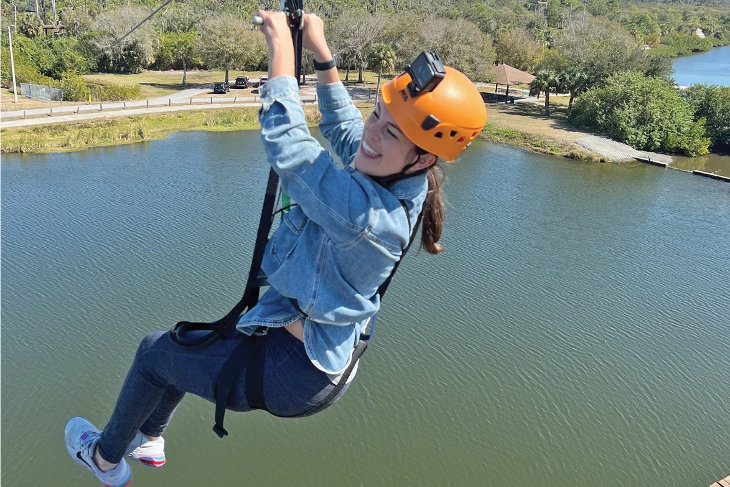
“There is a natural wear and tear in my knees,” she said. “I work with a personal trainer and OT, and I’m starting to regain some of the things I wasn’t able to do a couple of years ago. If I don’t keep up, though, it will continue to get worse.”
Bear goes to the gym at least twice a week in between creating videos for social media, which is her full-time job. She also speaks publicly about disabilities and serves as an accessibility consultant for different destination bureaus. Currently, she’s working with Visit Tampa Bay to improve accessibility around town.
“I do things like make sure tables in a restaurant are set up properly and spaced far enough apart, and that a store has a ramp that’s not blocked by a garbage can” she said. “I ask the destination bureaus, ‘Are you marketing to disabled people? Are they included in your campaigns?’
On the whole, Chelsea believes that society is going in the right direction when it comes to disability education, awareness, and inclusivity.
“It’s more common to talk about disabilities now than 20 or 30 years ago when I was growing up,” she said. “There could be a lot more representation of disabled people just living their lives in the media and Hollywood.”
In her day-to-day life, Chelsea has had many positive interactions with people who want to help her.
“I receive random acts of kindness all the time,” she said. “Once, I was traveling by myself and had a big suitcase. Some woman came over and stayed at the luggage conveyer belt with me for a half hour just to make sure I was able to carry my luggage.”
Chelsea, who created a video of herself making latkes and lighting a menorah this past Hanukkah, is planning to post about Jewish Disabilities Awareness, Acceptance, and Inclusion Month (JDAIM), which is in February. It’s a way for Jewish organizations to be welcoming and accommodating to Jews with disabilities as well as raise awareness about this topic.
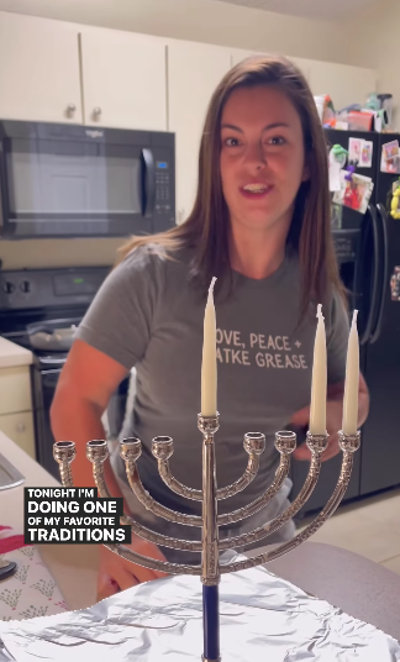
“I am proud to be Jewish,” Chelsea said. “In a time when antisemitism is so unfortunate and strong, it’s really important for me to continue to celebrate the Jewish holidays and show my pride.”
Chelsea has been active online for years now, but she’s just getting started. She hopes to continue advocating for her community as well as show her fans and followers what people with disabilities go through.
“We are people, bottom line,” she said. “You could make simple adaptations to make a whole group of people feel included. We want to be included just like everyone else.”
